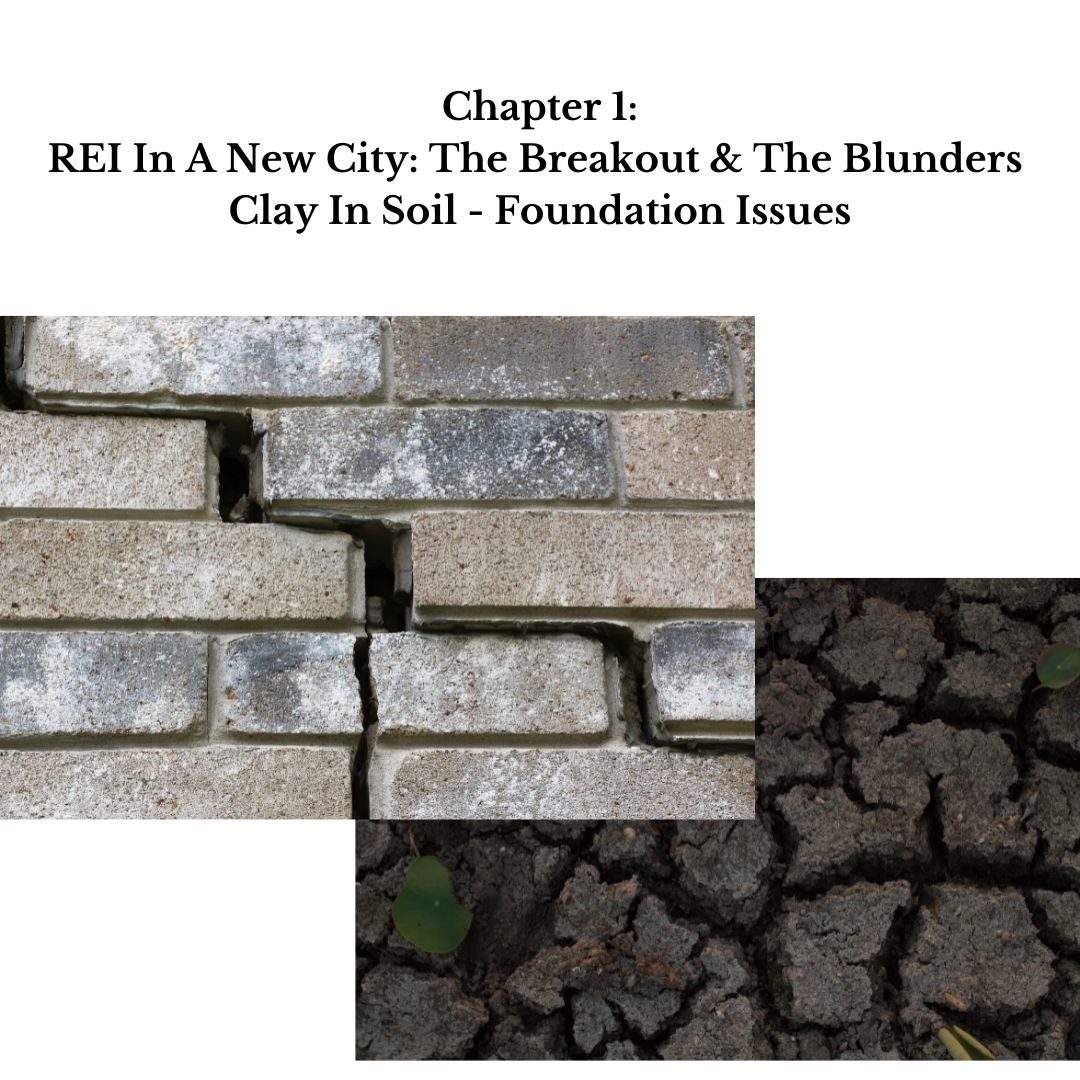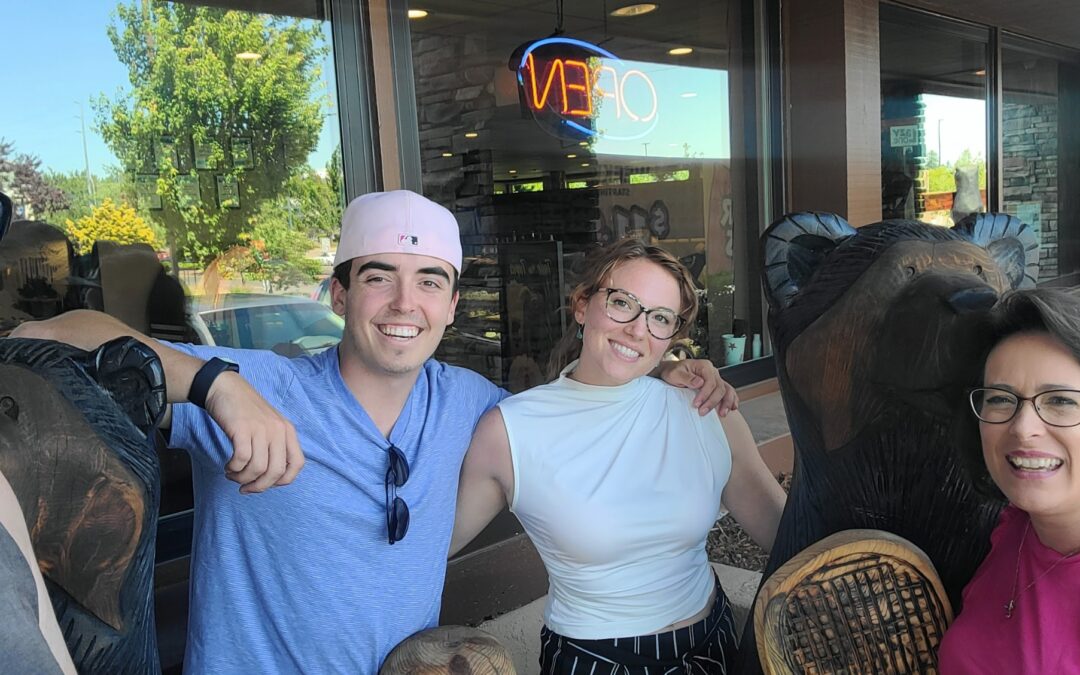
Why do so many homes in the Houston, Texas area develop foundation issues? What causes the damage and what, if anything, can be done to save those homes? Believe it or not, a lack of knowledge about the soil is actually the main culprit of that damage. A good understanding of the soil composition and how that affects construction foundations can go a long way toward preventing future damage. That same knowledge can also point you in the right direction for repairing existing damage.
Houston Area Soil Composition
The soil in the Houston area is predominantly a soil called black, or dark, gumbo clay. Black gumbo clay is part of the Houston Black Soil series which is unofficially the state soil of Texas, and in fact, is only found in Texas.
Houston Black Soil and black gumbo clay get their names from the dark color of the soil and the sticky, clumpy nature of the soil when it is wet. This texture is, at least in large part, due to the high concentration of smectite clays in the soil. The dark color comes from the decomposition of prairie grasses.
Positive Aspects of Houston Black Soil
According to the Soil Science Society of America, “most Houston Black soil is found on farms, with the majority growing cotton, sorghum, and corn, but hay and pastureland are also common. It is one of the highest agricultural producing soils in Texas, generating between $300 to $500 million in annual revenue.”
The clay contains nutrients, including potassium, calcium, and magnesium, that are essential to successfully growing these agricultural products. The sticky smectite clay holds the nutrients in such a way that they are not washed away by rain, but are still accessible to the plants.
Negative Aspects of Houston Black Soil
Some of the same characteristics that make this soil so agriculturally productive are the same characteristics that wreak havoc on building foundations. The U.S. Department of Agriculture, Natural Resources Conservation Service, Soils Division, describes these soils as having very high shrink-swell potential. What this means is basically the extent to which soil shrinks in the absence of water and swells in the presence of water. This sounds very basic but can cause significant damage to foundations, roads, anything built on that soil.
Soil of any kind will shrink or swell depending on water content, but clay soil reacts much more drastically, causing much more extensive damage. Among other problems, during times of drought, deep cracks can open up in clay-heavy soil and can destabilize a slab foundation. And, as it pulls away from the foundation, it can open up gaps around the edges giving easy access to water from the next good rain to make its way underneath your house to create more instability.
In the opposite circumstances, in times of heavy rain, this same soil will very rapidly soak up as much water as it possibly can. This can cause soil to swell upward, also resulting in the destabilization of foundations.
Warning Signs
By the time you see diagonal cracks developing in your foundation, you will already have hundreds, potentially even thousands, of dollars in damages to be repaired. There are, however, earlier warning signs that can help prevent those high repair costs.
During a drought, you are bound to see some cracks developing, especially in areas with water restrictions. Pay attention to those cracks! If those cracks are crisscrossing your lawn and especially if those cracks are approaching, or along, the base of your house foundation, your foundation is in jeopardy. If you notice these signs you should schedule an inspection to see what is needed to preserve the integrity of your foundation.
Other signs that will become visible as the damage occurs or becomes more extensive include cracks in brickwork on the exterior of your home, windows and doors getting stuck or even separating from walls, and cracks appearing on the interior walls – especially if they look like stairsteps as they progress.
Damage Prevention
Obviously, since this black gumbo soil is so prevalent in the Houston area, if you are going to live here and enjoy all that Houston has to offer, you will have to incorporate a maintenance and prevention plan to combat potential damage from these unique soil conditions.
Regular inspections both by you and by professionals as the need arises are of utmost importance. Maintaining adequate moisture around your foundation is a huge preventative. Consult with local soil experts, conservationists and other experts to learn how best to maintain those moisture levels, especially in areas with water restrictions.
How American Made Home Solutions Can Help
Our team works closely with a vast network of experts and can help direct you to the right folks to assist you with your unique situation. And, should you find yourself facing such extensive damage that it exceeds your budget for repairs, we can help in other ways too, eliminating the cost of those expensive repairs for you.
- We purchase any type of traditional or distressed property
- We buy condos, town-homes, multi-family, and single-family detached homes
- We buy in all price points (as long as we can add enough value to make the deal work for all sides)
- We’ll buy homes with any and all amounts of work from cosmetic rehabs to complete tear downs
Schedule a consultation today to see how we can help you.





